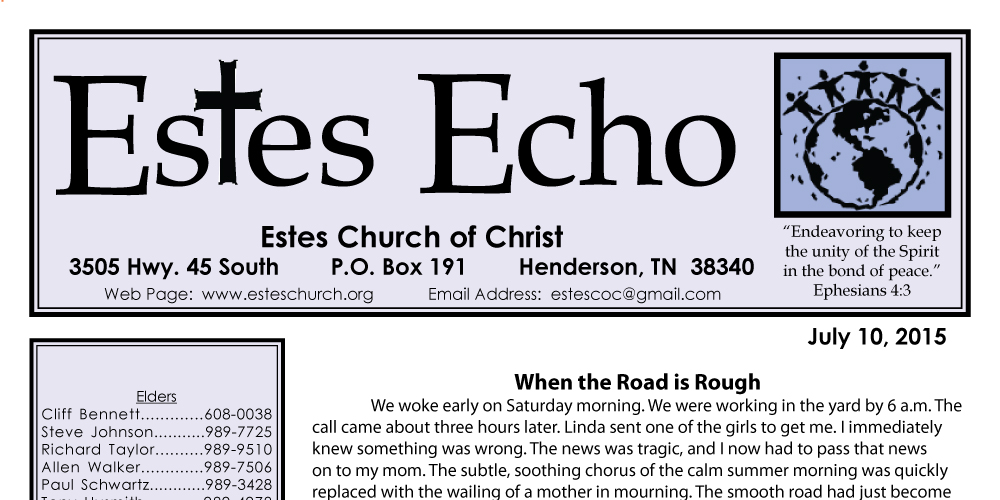Estes Echo
We live in a connected world. Mobile technologies are pervasive. This technological advancement is considered by most to be a good thing. However, as often is the case, good things often become challenges. Such can be the case now as our political season is well underway and our connected status besieges us with political news, news that is rarely healthy or positive. More times than not, the news story is full of selfish desires, hate, and negativity.
If we are not careful this barrage of selfish desires, hate, and negativity will influence us, even affecting us spiritually. Reading and hearing this kind of rhetoric can slowly change who we are. Things that obviously are counter to appropriate Christian behavior can slip into our lives and all at once become acceptable behavior. Things that have always been counter to our faith now move into our lives and weaken a once vibrant faith. When this occurs, a tremendous spiritual danger arises, one that Satan will use. Take this as a warning and consciously make an effort to monitor and control the mind siege brought about by our use of technology.
What can we do in this regard? In addition to managing our technology by using filters or turning it off for periods, I suggest we look at the book of Jude and here is why.
Jude is a short book, only 25 verses in length. Although dealing with false teachers that had gained access to the church, Jude’s teachings also provide a way to deal with the kind of things that negatively influence us or challenge our faith. In fact, one could argue that the kind of political rhetoric we are referring to could be considered false teaching in that it can encourage attitudes and activities counter to what Christians should display or be involved with. Our trust in the essential truth we hold to, the Gospel message as the only true way, must be protected.
Although the source of problems that Jude refers to may be different than what we confront today, the result can be the same, falling from the very beliefs that assure our salvation. Allowing selfish desires to control our thoughts and actions (vs 16) will eventually permit the deterioration of our beloved faith. So instead of being besieged by the political fallout of selfish desires, hatred, and negativity, let’s do what Jude encouraged his readers to do. In verse 3 he asks his readers to contend for the faith, meaning to fight diligently against the difficulties facing the one true faith. Beginning in verse 20, he suggests that we build ourselves up in the holiest faith, praying in the Holy Spirit, abiding in God’s love, which includes our demonstration of godly love. All of which will help recognize false rhetoric and in turn help us to stay focused in contending for and defending the faith.
–Mark Scott










